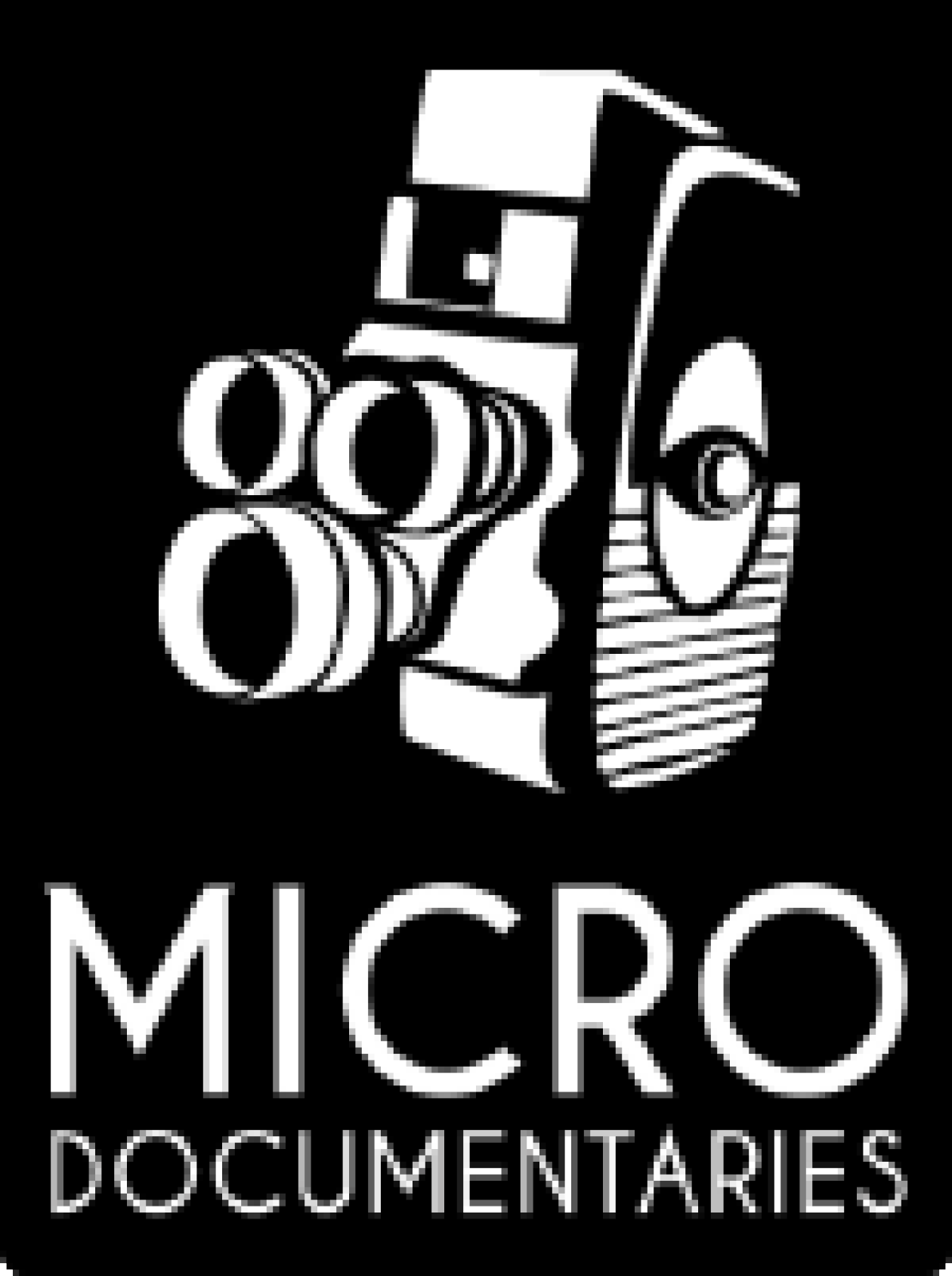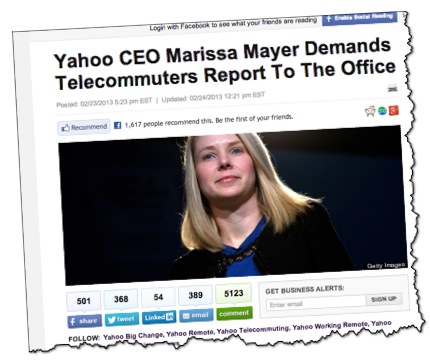Last week Marissa Mayer, the newly anointed president and CEO of Yahoo!, made big news when she terminated Yahoo!’s flexible work-from-home policy. In attempting to revitalize her company’s corporate culture and create an inspiring environment for new ideas, she believes that “communication and collaboration will be important, so we need to be working side-by-side.” (Here’s a full transcript of the leaked memo).
Mayer is clearly facing big issues at Yahoo!. The company has been underperforming for years and in many respects has been eclipsed by rivals like Google. In assuming new leadership, Mayer wants to send the message that she expects more productivity out of her workforce, so she’s eliminated a flexible policy to make her point clear. The trouble is, the policy that she’s chosen to eliminate in all likelihood had nothing to do with Yahoo!’s productivity issues to begin with. As David Heinemeier Hansson, partner at 37 Signals, put it, “What this reveals more than anything is that Yahoo management doesn’t have a clue as to who’s actually productive and who’s not.”
At Micro-Documentaries (granted, at a microscopic scale) we have the opposite issue. Our menace is burnout of an overly enthusiastic group of people that can often be found online in the wee hours of the night. I am constantly fine-tuning how we encourage the team to work in a more sustainable way. We have no office, no real office hours, a European-style holiday package and possibilities of sabbatical straight away. This, coupled with doing purposeful work, enables us to attract bright, creative, independent thinkers who are individually driven to perform well. What people are accountable to are their own deliverables. Whether they go hiking in the middle of the day, attend their child’s performance, or take off on a meditation retreat, this freedom enriches their lives in a way that directly translates into customer satisfaction and company growth.
We certainly could (and will continue to) do a better job of getting together more often, to enjoy each other’s company and collaborate on new innovations. But once you work with extreme flexibility, it’s very difficult to imagine going back. In some sense, our situation is particular to our service, but there is no doubt in my mind that it would be healthy for all organizations, from Fortune 500 companies to nonprofits, to embrace a mobile approach designed to enrich a person’s life instead of draining it. Categorically removing this privilege is a powerful way to un-inspire their brightest employees.
The loyalty, trust, commitment, and, yes, productivity, that has resulted from our flexible approach to the workforce has already paid us back tenfold from any “shared communication and collaboration” that we would have gotten from mandating sitting side-by-side all day long. One of the Stanford conference attendees the other day dubbed me “Chief Digital Gypsy of Micro-Documentaries” in reference to a series we recently produced on this very topic (more on that soon). I have to say, the title suits me well.

